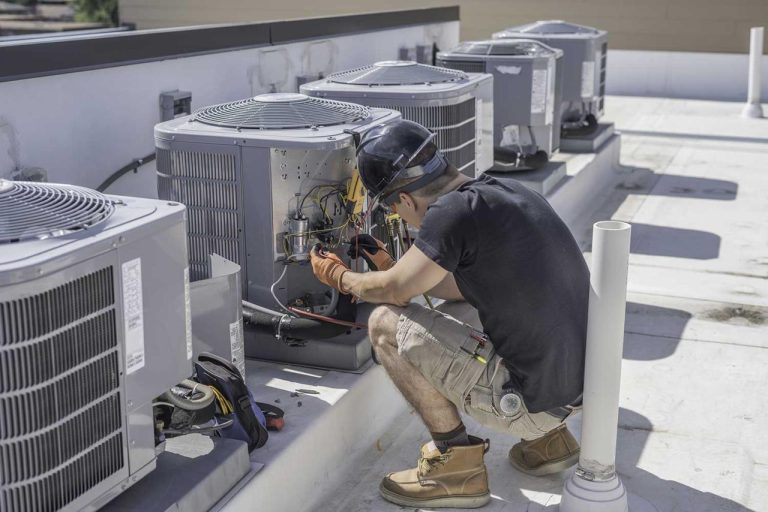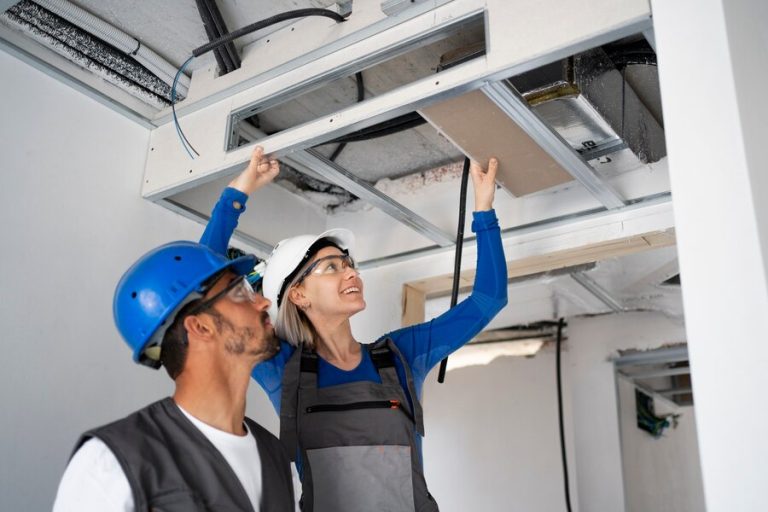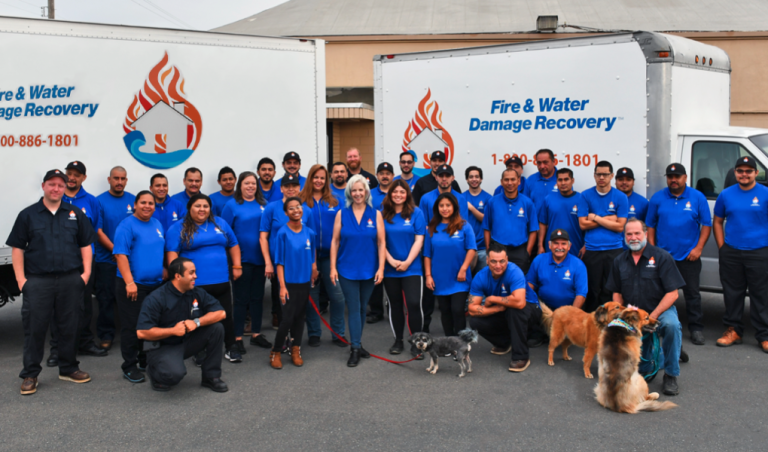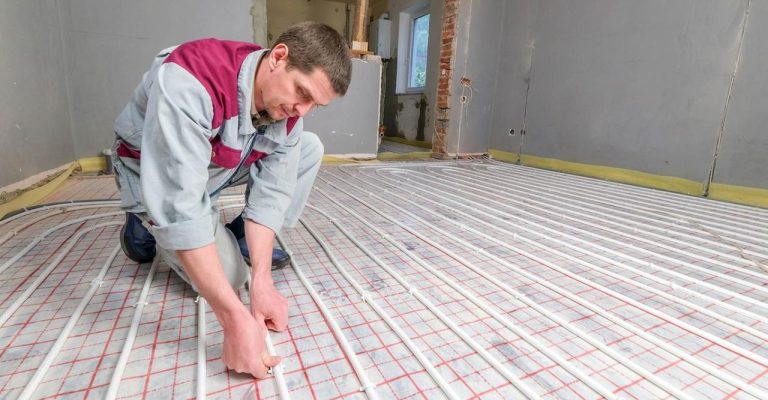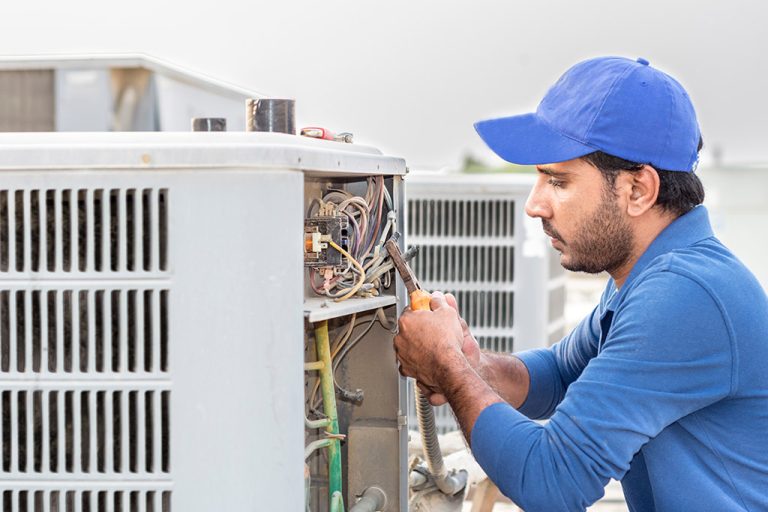Finding Commercial HVAC Near Me
Commercial HVAC companies near me are crucial for maintaining optimal building environments. This guide provides a practical approach to finding reputable companies, evaluating their services, and making informed decisions. We’ll cover identifying local companies, assessing their profiles, comparing services and pricing, and understanding customer feedback to help you choose the best fit for your needs.
From navigating various search methods to scrutinizing online profiles and comparing pricing models, this comprehensive resource equips you with the tools to locate and select the ideal commercial HVAC provider in your area. We’ll also guide you through evaluating reviews and testimonials, and ultimately, selecting the perfect company to meet your needs.
Identifying Local HVAC Companies
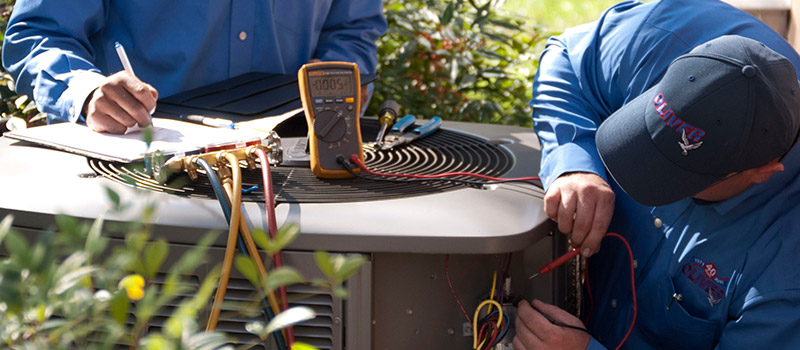
Source: oliverheatcool.com
Finding the right commercial HVAC company for your needs involves careful research and consideration. Understanding the local landscape and various avenues for locating qualified contractors is crucial for a successful project. Thorough due diligence helps ensure you select a reliable and competent company.
Methods for Locating Commercial HVAC Companies
Several methods can help you identify suitable commercial HVAC companies in your area. These methods range from traditional approaches to modern digital strategies.
- Online Business Directories: Online business directories, such as Yelp, Angie’s List, and local government websites, provide a readily accessible platform to find potential HVAC contractors. You can search by location, specializations, and ratings. Look for companies with a strong online presence, positive reviews, and clearly defined services. Check for verifiable contact information and recent client testimonials. For example, you might search for “commercial HVAC contractors near me” on a business directory, filtering by company size if needed.
- Networking and Referrals: Networking with other business owners, professionals, and industry contacts can yield valuable leads. Attend industry events, join professional organizations, and leverage your existing network. Referrals from trusted sources often lead to reliable companies with proven track records. This approach is often faster and more efficient if you have strong professional connections in the area.
- Professional Associations: Professional associations for HVAC contractors, such as the Air Conditioning Contractors of America (ACCA), can be a source for finding qualified and licensed companies. These associations usually maintain a directory of members within a specific region, allowing you to identify potential contractors in your area. Check for associations in your local area, which may provide direct contact information.
- Local Classifieds: Local classifieds, both print and online, can provide opportunities to find companies that offer HVAC services. This method may be less effective than online resources for large-scale commercial HVAC searches but can still yield local companies. This is especially helpful for smaller or more specialized companies.
- Direct Solicitation: Contacting potential companies directly is a viable option. Use online search engines and directories to identify companies and contact them to inquire about their services, availability, and pricing. This allows for a more direct interaction and provides greater control over the selection process.
Comparison of Methods
| Method | Advantages | Disadvantages | Estimated Time |
|---|---|---|---|
| Online Business Directories | Wide range of options, readily accessible, often includes reviews | May not reflect all local companies; potential for inaccurate or outdated information | 1-3 hours |
| Networking and Referrals | Trusted recommendations, potentially faster results, and often lower cost | Limited to existing networks, may not be suitable for large-scale searches | Variable, potentially days to weeks |
| Professional Associations | Vetted professionals, industry expertise, often reliable | Membership fees, limited access to certain information | 1-2 hours |
| Local Classifieds | May uncover niche contractors, potentially lower cost | Limited reach, less comprehensive information | 1-2 hours |
| Direct Solicitation | Direct communication, tailored inquiries, potentially better pricing | Requires more effort, time-consuming if multiple companies are contacted | Variable, potentially hours to days |
Online Search Engine Strategies
Effective online searches can greatly assist in finding suitable commercial HVAC companies.
- Refinement: Use specific s, including location, services, and company size (e.g., “commercial HVAC contractors near [city name],” “HVAC maintenance for large buildings”). This ensures you target the correct companies for your specific needs.
- Location-Based Search: Utilize location-based search functions to filter results by your precise geographic area. This ensures you only see companies within a reasonable distance, which is crucial for commercial HVAC projects.
- Advanced Search Operators: Leverage advanced search operators (e.g., quotation marks for exact phrase searches, minus signs to exclude specific terms) to refine your search results and find more relevant HVAC contractors.
Evaluating Company Profiles: Commercial HVAC Companies Near Me
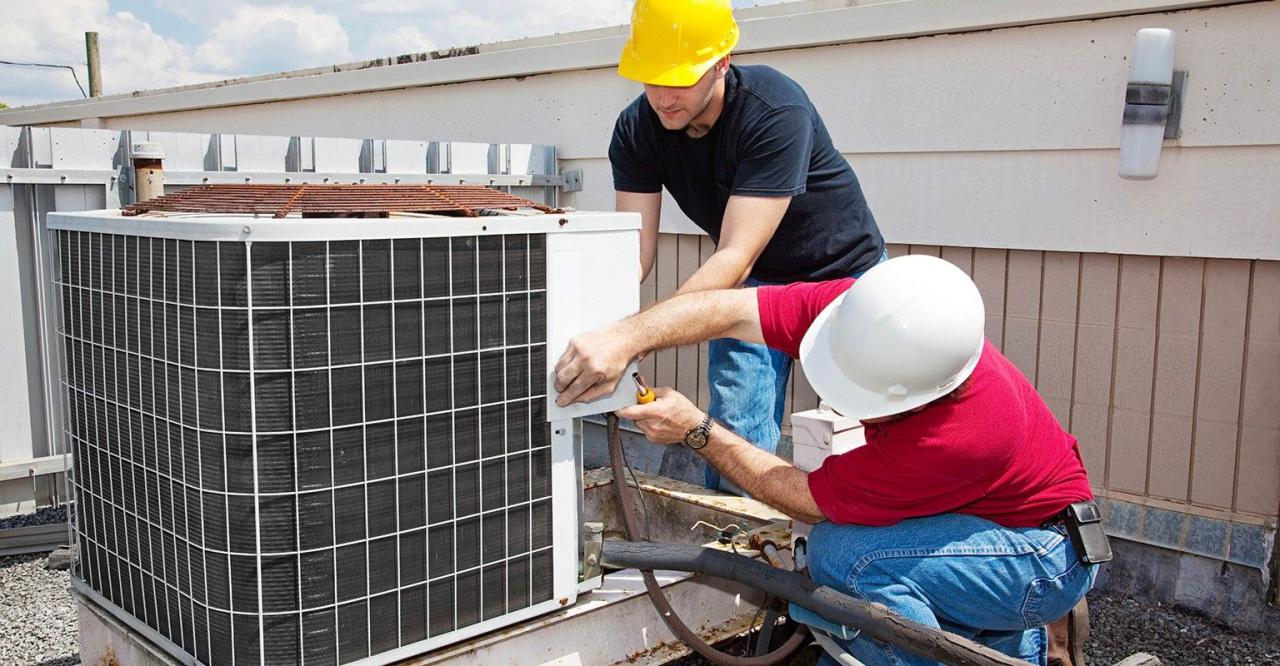
Source: thumbtack.com
Scrutinizing online profiles is crucial for identifying reputable commercial HVAC companies. A company’s online presence often reveals crucial information about its reliability, experience, and commitment to quality service. This assessment allows potential clients to make informed decisions and avoid potential issues.
Evaluating a company’s online footprint involves more than just a glance. It necessitates a thorough review of various elements to gauge their trustworthiness and suitability for your needs. This process is vital for safeguarding your investment and ensuring a smooth and successful HVAC installation or maintenance contract.
Identifying Reputable Companies Online
A robust online presence is a significant indicator of a company’s professionalism and reliability. Companies that prioritize online visibility are often more organized and better equipped to handle complex commercial projects. Look for consistent branding, clear communication, and active engagement on platforms. A professional website showcasing relevant experience, testimonials, and clear contact information significantly enhances trust.
Key Elements for Website Review
Evaluating a company’s website or online profiles requires careful attention to detail. Here are five key elements to look for:
- Clear and Comprehensive Information: A well-structured website should article the company’s services, experience, and qualifications. Information about licensing, certifications, and insurance should be readily available. Avoid companies with vague or incomplete descriptions, as this could suggest a lack of transparency or professionalism.
- Professional Design and Content: A professional-looking website with well-written and error-free content signals a commitment to quality. Avoid companies with a poorly designed website or content riddled with grammatical errors, as this may indicate a lack of attention to detail.
- Contact Information and Accessibility: Easy-to-find contact information (phone numbers, email addresses, physical address) is essential. A company that prioritizes communication demonstrates a commitment to client service. Verify that the company’s contact information is current and accessible through multiple channels.
- Client Testimonials and Case Studies: Positive client testimonials and case studies provide valuable insights into the company’s performance and service quality. Review these testimonials critically, paying attention to the consistency of positive feedback and the relevance of the projects described.
- Proof of Licensing and Insurance: Ensure that the company is properly licensed and insured. This is a critical factor in verifying the company’s legitimacy and ability to fulfill contractual obligations. Look for easily accessible documentation, such as licenses and insurance certificates.
Differentiating Legitimate from Potentially Fraudulent Companies
Distinguishing between legitimate and potentially fraudulent HVAC companies requires scrutiny. Be wary of companies that avoid providing specific details about their services or experience. Unclear or vague communication regarding pricing or project timelines should raise concerns. Be suspicious of companies that pressure you into immediate decisions without providing adequate information or options. Thorough due diligence and verification are essential to avoid potential scams.
Verification Methods
The following table highlights various verification methods for evaluating commercial HVAC companies:
| Verification Method | Description | Example | Effectiveness |
|---|---|---|---|
| Online Reviews and Ratings | Check online review platforms (e.g., Yelp, Google My Business) for customer feedback. | Look for consistency in positive reviews and red flags like complaints about poor service or billing issues. | Moderate – Provides a general sentiment but may not be entirely representative. |
| Licensing and Certification Verification | Verify the company’s licensing and certifications through relevant state or local authorities. | Contact your state’s HVAC licensing board to confirm the company’s active license. | High – Provides official validation of the company’s legal status. |
| Insurance Verification | Confirm the company’s liability insurance coverage. | Request a copy of the company’s insurance certificate. | High – Shows the company’s financial responsibility and ability to cover potential damages. |
| References and Case Studies | Request references from previous clients to verify the company’s work history. | Contact previous clients to assess the quality of their service and project management. | High – Allows for direct confirmation from satisfied clients. |
| Background Checks (if applicable) | Utilize resources to check for any past violations or negative reports. | Use online directories or business databases for background information. | Moderate – Availability and depth of information vary. |
Comparing Services and Pricing
Evaluating commercial HVAC companies requires a thorough understanding of their services and pricing models. Different companies may offer varying packages, and understanding these differences is crucial for making an informed decision. This section provides a framework for comparing services and pricing, helping you find the best fit for your needs.
Comparing Services Offered, Commercial hvac companies near me
Understanding the scope of services offered is vital. Some companies may specialize in maintenance, while others may offer a broader range of services, including repair, installation, and even energy audits. Carefully review the services each company provides to ensure they meet your specific needs. Look for companies that offer a range of solutions, including preventive maintenance, to help avoid costly breakdowns.
Comparing Pricing Models
Different pricing models exist, and it’s essential to understand how they work. A comprehensive comparison of pricing models is presented in the following table. Note that pricing varies significantly depending on the complexity of the system and the specific services required.
| Company | Maintenance | Repair | Installation | Pricing Model |
|---|---|---|---|---|
| Acme HVAC | $50/month preventative maintenance plan; $100/hour for reactive maintenance | $75/hour; tiered pricing for multiple units | $5,000-$10,000 depending on system size and complexity; installation includes parts and labor | Hourly rate and subscription-based plans |
| Superior HVAC Solutions | $75/month for comprehensive maintenance; $125/hour for emergency service | $90/hour; discounts for multiple units and emergency repairs | $6,000-$12,000 depending on system size and complexity; installation includes parts and labor, plus a 10% markup for specialized equipment | Hourly rate and flat-fee plans |
| GreenTech HVAC | $60/month for basic maintenance; $150/hour for reactive maintenance; discounts for contracts | $85/hour; discounts for multiple units and emergency repairs | $4,500-$9,000 depending on system size and complexity; installation includes parts and labor | Hourly rate and tiered maintenance plans |
Questions to Ask About Pricing
Clarifying pricing details is essential. Here are some questions to ask potential service providers to ensure transparency and clarity.
- Clarify pricing models for maintenance, repair, and installation. Be specific about what’s included in each price point, including labor, parts, and any additional charges. Examples of pricing models include tiered pricing based on the size of the system or service complexity or flat-rate plans for routine maintenance.
- Inquire about any hidden fees or additional charges that may apply. Be clear about what constitutes an emergency service and how much it will cost. Understanding the potential for additional costs associated with specialized equipment or unusual circumstances is crucial.
- Request detailed breakdowns of all potential costs, including materials and labor, to ensure transparency. Be sure to inquire about the company’s payment terms and any applicable discounts for bulk services or long-term contracts.
Identifying Hidden Fees
Be vigilant about hidden fees or additional charges. Review the fine print of contracts carefully to identify potential costs that are not immediately apparent. Some examples include extra charges for travel time, overtime, parts not covered by warranty, or disposal of old equipment. A clear understanding of all potential costs is essential for a successful and cost-effective service agreement.
Understanding Customer Reviews and Testimonials
Customer reviews and testimonials offer invaluable insights into the performance and reliability of commercial HVAC companies. They provide a direct perspective from past clients, revealing the strengths and weaknesses of a company’s services, installation quality, and overall customer experience. Scrutinizing these reviews is crucial for making informed decisions, especially when dealing with significant investments in commercial HVAC systems.
Thorough examination of customer feedback, both positive and negative, can illuminate potential issues or highlight areas of excellence. This approach empowers potential clients to make well-reasoned choices based on real-world experiences rather than relying solely on marketing materials. Recognizing the potential biases inherent in online reviews, combined with an understanding of their authenticity, will enable a more comprehensive evaluation process.
Importance of Customer Reviews
Evaluating commercial HVAC companies involves considering a multitude of factors, and customer reviews provide a unique perspective that complements other assessments. Reviews offer a glimpse into the company’s responsiveness, the quality of its technicians, and the overall customer service experience. They reveal the speed of service, the efficiency of repairs, and the helpfulness of the staff. Positive reviews often highlight prompt service, efficient repairs, and skilled technicians, while negative reviews may reveal issues with communication, delays, or unsatisfactory work quality.
Interpreting Customer Reviews and Testimonials
Understanding how to interpret customer reviews is essential for a thorough evaluation. Positive reviews, often expressing satisfaction with service quality and responsiveness, offer valuable confirmation of a company’s strengths. Negative reviews, though sometimes reflecting isolated incidents, can reveal recurring issues or areas requiring improvement. Focus on patterns in the feedback, such as recurring complaints about response times or technician competence. Look for specific examples within reviews, as they provide concrete details about the company’s actions or inactions. A review mentioning a technician’s professionalism or an efficient repair process offers a clearer picture of the company’s capabilities.
Authenticity Verification Methods
Authenticity verification is vital to ensure that reviews are genuine and not manipulated. Pay attention to the writing style and tone. Reviews that appear overly promotional or overly critical may lack credibility. Look for specific details and descriptions that support the claims made in the reviews. A review mentioning a particular technician’s name or the exact date of a service call provides greater authenticity. Cross-referencing the details with other information about the company, such as its website or social media presence, can provide additional context.
Review Platform Analysis
Different online review platforms have distinct characteristics, influencing their reliability and user base. Evaluating these platforms helps in understanding the context and potential biases in the reviews.
| Platform | Pros | Cons | User Base |
|---|---|---|---|
| Google My Business | High visibility, easy to access, often linked to local searches. | Potentially susceptible to manipulation, reviews might not be from actual customers. | Vast, diverse range of local businesses and customers. |
| Yelp | Established platform, extensive user base, and diverse range of businesses. | Reviews can be influenced by personal biases, some users may not be actual customers. | Large and varied user base with a wide range of perspectives. |
| Angie’s List | Focus on home services often provides a detailed service history. | Limited user base compared to other platforms, potentially biased towards specific services. | Primarily composed of homeowners seeking home services. |
Ultimate Conclusion
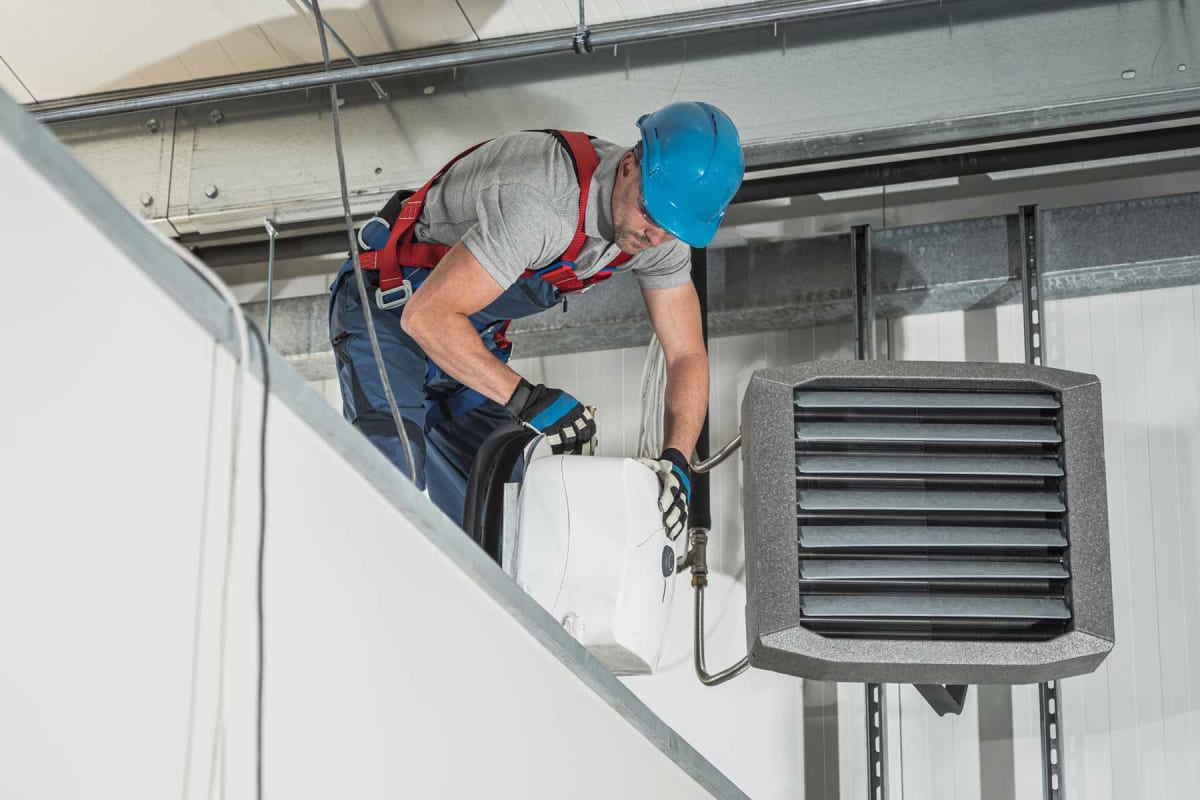
Source: cloudinary.com
In conclusion, finding the right commercial HVAC company requires careful consideration. By utilizing the methods in this guide, you can confidently identify reputable companies, compare services and pricing, and ultimately select the best provider for your specific needs. This process ensures your commercial space enjoys the best possible comfort and efficiency.
